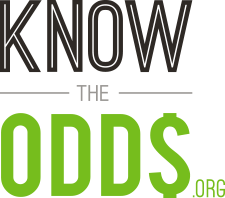
Gambling can be defined as any activity (e.g. a game of chance or skill) where an item of value is placed at risk in an attempt to gain something of greater value.
A problem gambler dedicates more time, thought and money towards gambling than a social gambler.
Warning Signs of a Gambling Addiction
How can you tell when gambling is becoming a problem for you or a loved one? After all, when done in the spirit in which it’s intended – as a fun thing to do every now and then for the happy few times one beats the house and wins a few dollars – gambling can be an enjoyable pastime during a vacation or long weekend away from the everyday. But it can be difficult to tell when it’s become something more insidious and dangerous. Read below for some of the signs when gambling has become – or is starting to become – more than an occasional amusement and turning into an addiction.
• Are you or a loved one haunted by bill collectors?
• Do you or a loved one gamble to escape worry, boredom or trouble?
• Do thoughts of gambling disrupt your sleep?
• Do you or a loved one ever gamble longer than originally planned?
• Do arguments, disappointments or frustrations cause you or a loved one to gamble?
• Do you hide the rent/mortgage or food money because your spouse, partner or other family member gambles it away?
• Does your spouse, partner or other loved one promise faithfully that she or he will stop gambling, yet continues to gamble?
Adolescent Warning Signs
• Unexplained absences from school or classes
• Sudden drop in grades or failure to complete assignments on time
• Change of personality or behavior
• Bragging about winning at gambling
• Intense interest in gambling conversations
• Borrowing or stealing money If you are looking for support for a gambling problem, or to deal with your spouse’s or family member’s gambling problem please contact the
